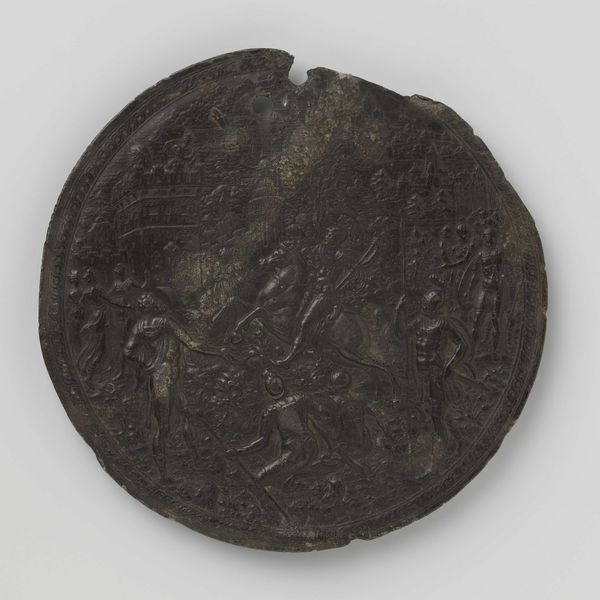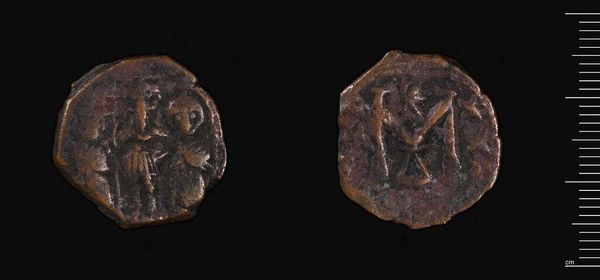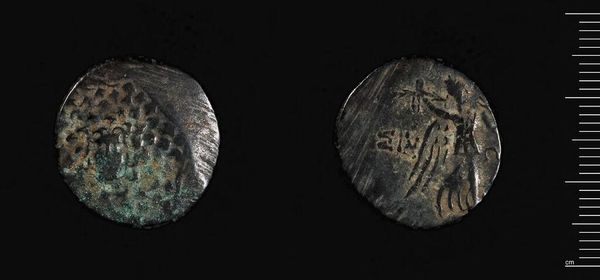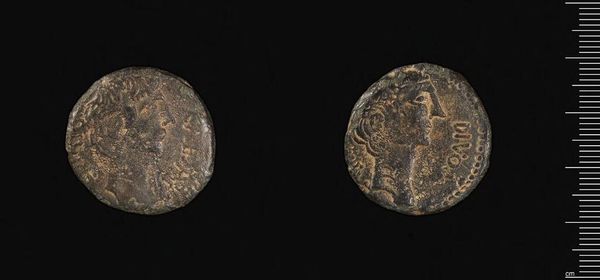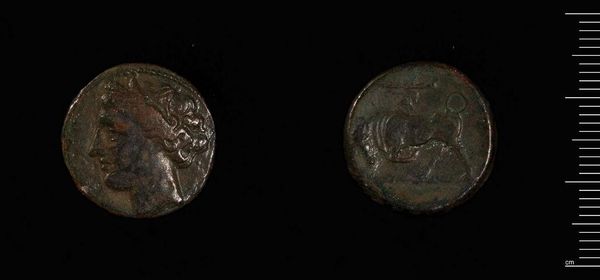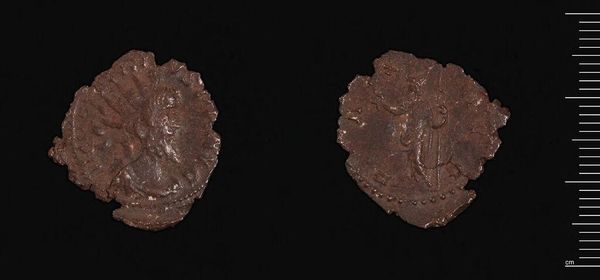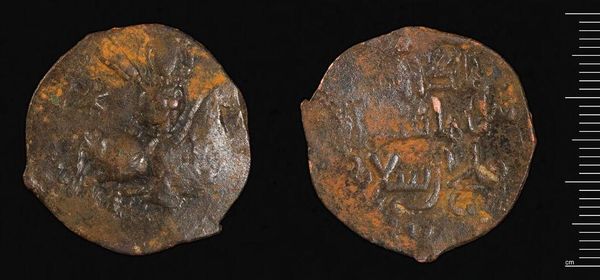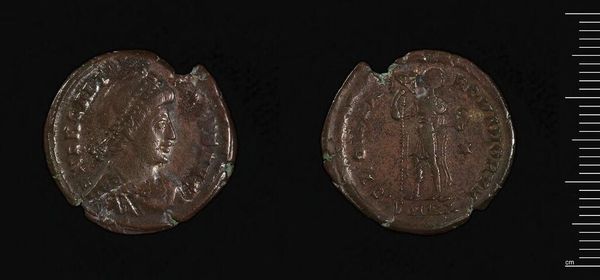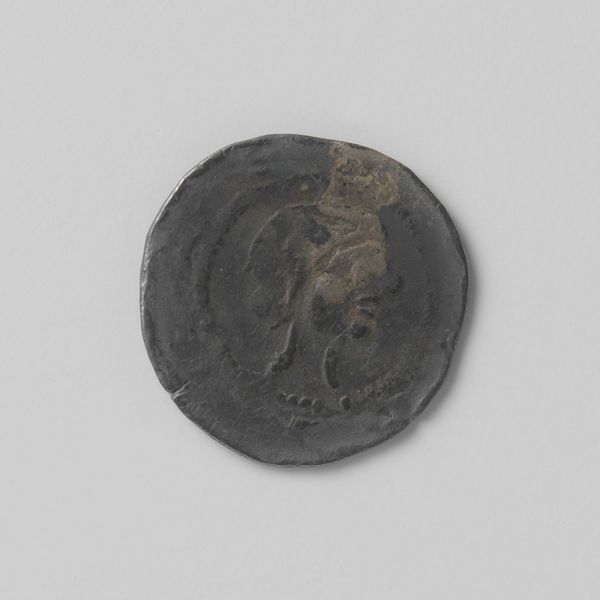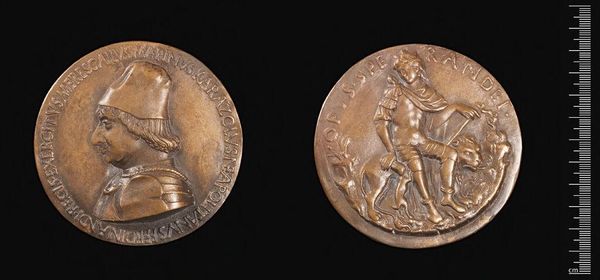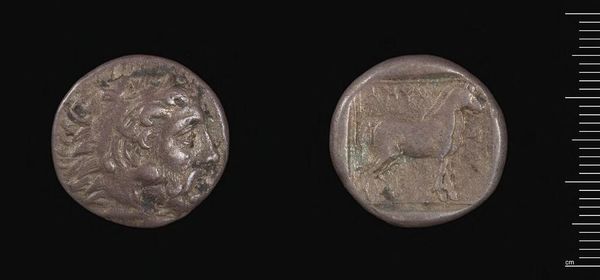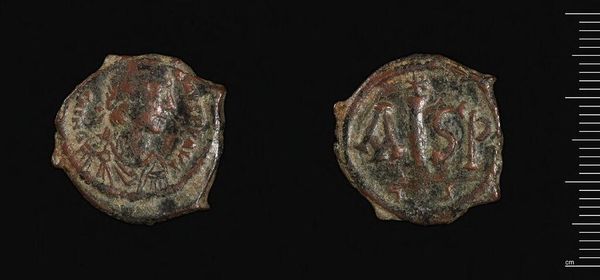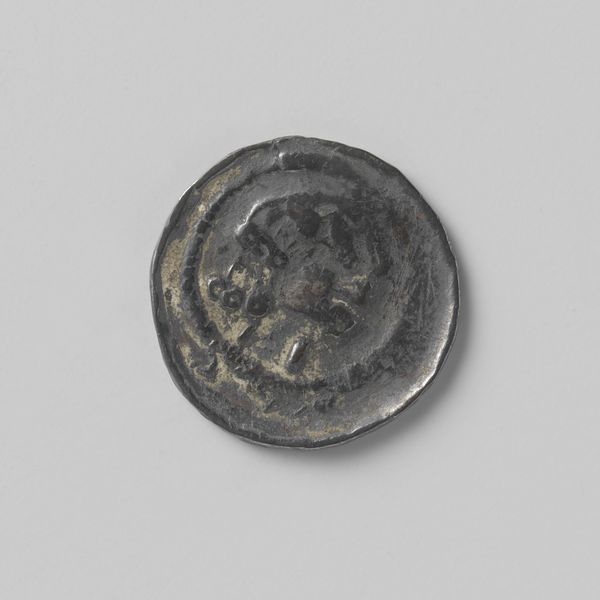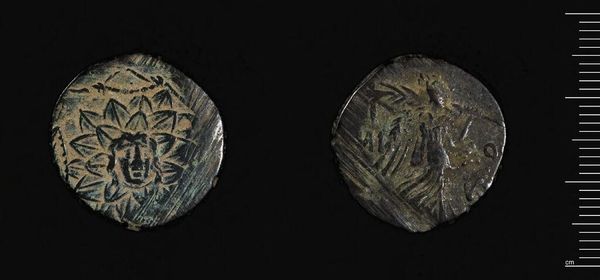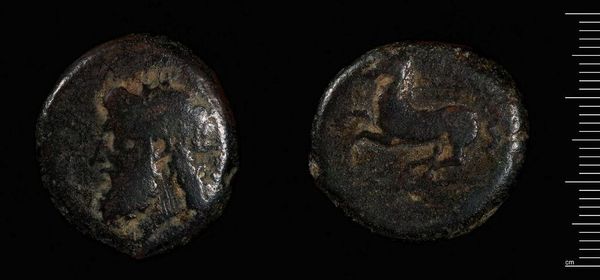
metal, relief, bronze, sculpture
#
portrait
#
metal
#
sculpture
#
relief
#
bronze
#
sculpture
#
italian-renaissance
Dimensions: 2.6 cm (height) x 3 cm (width) x 0.3 cm (depth) (Netto)
Editor: This bronze relief sculpture, "Sigismondo Pandolfo Malatesta," created between 1441 and 1467 by Matteo de' Pasti, has a serious and imposing mood. The profile is very detailed for such a small piece. How do you interpret its historical and social meaning? Curator: The image of Sigismondo transcends mere portraiture. This is about the construction of power, the fashioning of a ruler’s image for posterity. It reflects the societal values of the Italian Renaissance where powerful men sought ways to express themselves. What kind of narratives does this coin engage with gender and power at the time? Editor: Well, the fact that this is a portrait of a man, a ruler, automatically places it within a certain power dynamic. Did his gender afford him certain privileges in how he was represented? Curator: Precisely. Think about the commission itself – who has the resources and authority to dictate their own image? Moreover, consider the artistic choices. The idealised features, the confident gaze. They aren't just aesthetic; they're carefully constructed signifiers of male authority. But we could also ask: Who gets remembered, and how? The politics of visibility, even then, shaped history. This object makes one reflect on the systems and social relationships which inform the construction of leadership and who holds political authority. Editor: That's a very insightful way to read the piece. I hadn't considered how actively his image was crafted as a tool. Curator: Consider further how his legacy affected gender roles. Male privilege would only continue from here on. Editor: Thank you, seeing it that way adds another layer to its meaning, especially today! Curator: Exactly. Now it invites you to ask pressing, challenging questions.
Comments
No comments
Be the first to comment and join the conversation on the ultimate creative platform.
